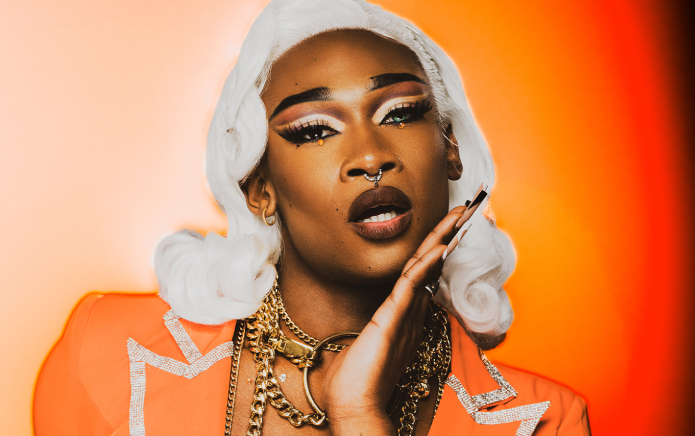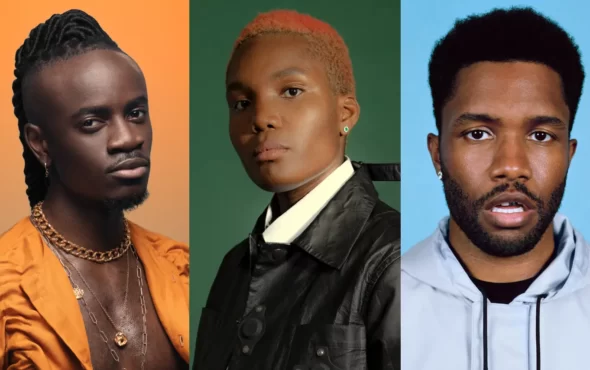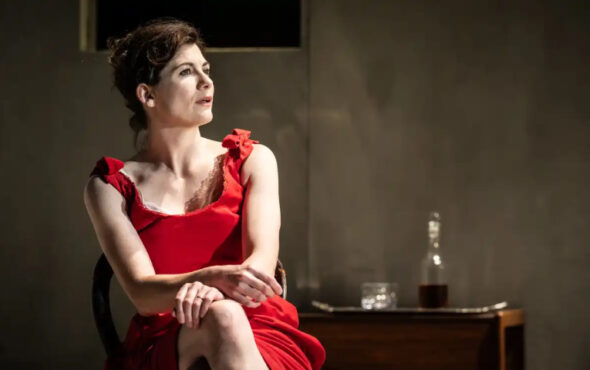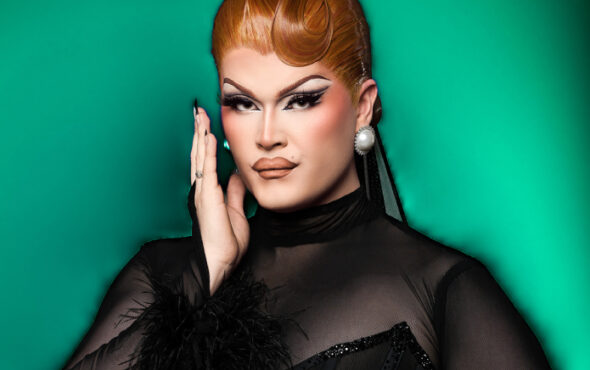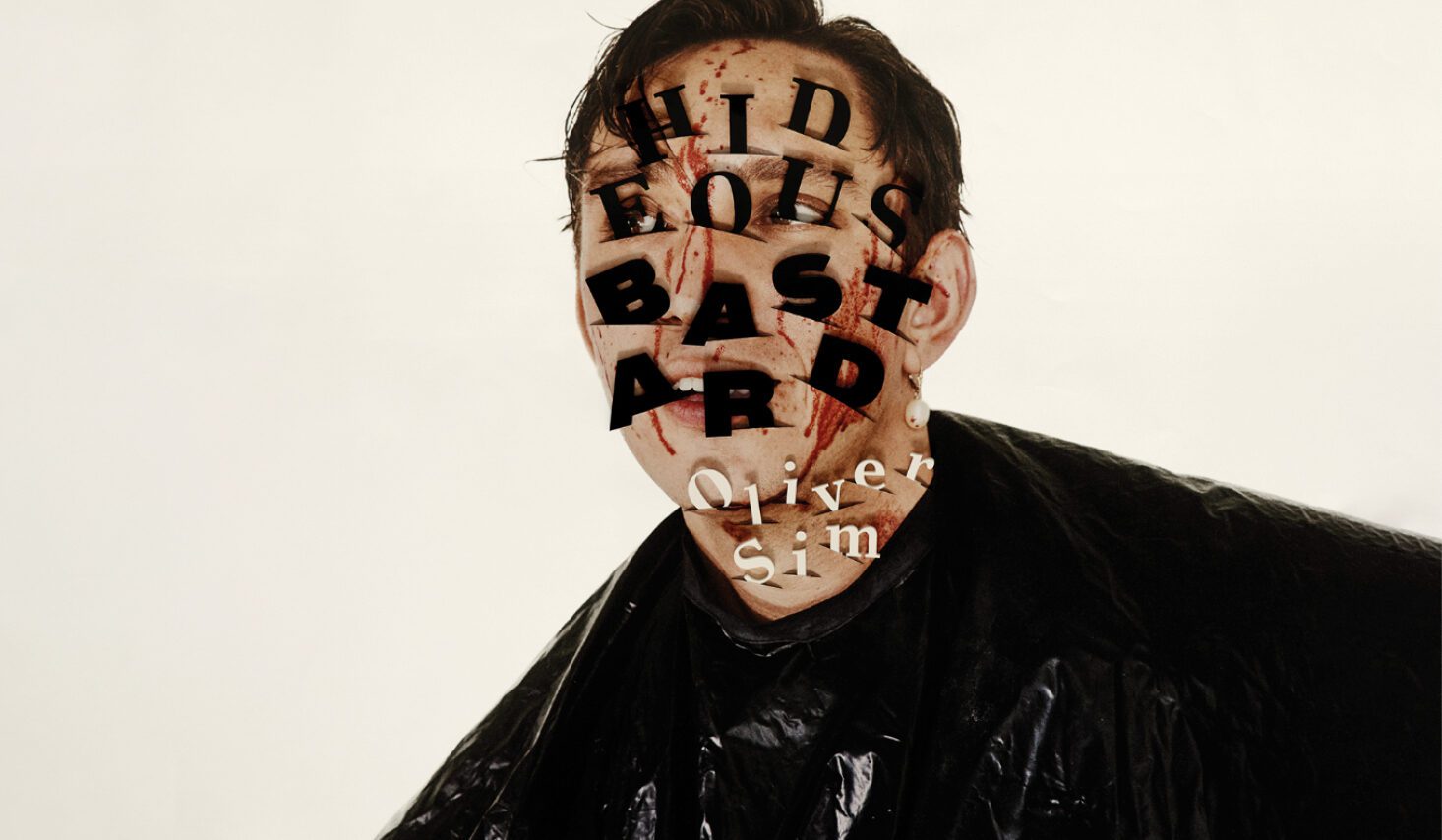
“I kill loads of people!” Oliver Sim laughs. The guitarist slash vocalist of indie-electronic trio The xx is discussing his deliciously queer horror film Hideous – not his real-life activities, just FYI – a camp-as-tits, blood-soaked homage to some of the star’s favourite horror flicks and “closeted, repressed queens” from Buffalo Bill to Hannibal Lecter and Patrick Bateman. Accompanying the release of his genre-defying debut album, Hideous Bastard, both projects explore “shame and fear” surrounding Sim’s queerness and HIV status while taking fans on an adventure filled with “fantasy and humour”.
“The past three years of making this record, I’ve noticed differences from where I was to where I am now,” Sim, who publicly came out as HIV positive earlier this year, explains. “Being on this Zoom and we’ve just met, and being able to talk about these things and even being able to mention my HIV, that would’ve been impossible three years ago. Making music hasn’t been where the change has happened.” While Sim admits that his debut era – “Oh my god, you just called it an ‘era’ and I died! I love that,” he laughs – was a cathartic experience for him, sharing his status with his loved ones is where he found true liberation. “Music can sometimes be a bit of a copout for me to share stuff.”
Here, Sim speaks with GAY TIMES about Hideous/Hideous Bastard, the LGBTQ+ community’s strong connection to the horror genre and why it was important for him to not “shy away” from his queerness as a solo artist. The Buffy the Vampire Slayer stan also settles the ‘Team Angel or Team Spike?’ debate. Very important.
So Oliver, this is your debut solo era…
Oh my god, you just called it an ‘era’ and I died! I love that.
I sound like one of the stans in Pop Crave’s mentions, don’t I?
That has made my day.
Hideous, the album and film, takes inspiration from a lot of classic horror movies and tropes. You’ve spoken about the genre quite a bit throughout this campaign, so I have to ask: who is your ultimate final girl?
I’m probably going to say Sigourney Weaver in Alien, Ripley. She’s an interesting one for me because she was the most conflicting. I was still trying to figure out what my relationship to her was. I was like, ‘Do I wanna be that?’ so she’s probably my fave. Honourable mentions: Neve Campbell in Scream and Jamie Lee [Curtis] in the Halloween franchise, but Sigourney has my heart.
Did you always intend to create a film alongside the album?
Yeah. Well, I started the process of making the film when I barely had an album. I only had a handful of songs, but I knew what the record was going to be about from those few songs. It allowed me to do a few things. All of my favourite artists are people that kind of create a world, they interact with more than just music, whether that’s fashion or art or film. When they do that, that ignites the real fan boy in me. Also, I knew what the themes were shaping up to me, it was confessional and about shame and fear, but making the film allowed me to bring some fantasy to it. I really didn’t want to present it in an overly earnest way. Especially coming out of lockdown, people don’t need to see me performing in my bedroom stripped back all raw and real. That’s boring and two-dimensional to me. Making a film allowed me to bring some of the adventure and fantasy and humour.
Why do you think queerness and horror have always gone hand in hand?
There is something very queer about… The whole idea of a monster to me is very attractive because they were, not only exciting to me, but they were being cast out of society or chased out of town for being different. On top of that, they allowed themselves to be angry, which is something I didn’t allow myself to be as a kid. That was really nice to see, and it felt quite empowering and exciting to me. I didn’t identify with so many of the characters I was meant to. I wasn’t an action hero. I wasn’t a Disney Prince. They’re boring. Now in cinema, they’re making films about origin stories behind villains like The Joker, Maleficent and Cruella. They’re not doing that for the Disney Princes and the superheroes because the question, ‘How did you get so brave and handsome and charming?’ is fucking boring. I wanna know how you got so twisted. I think that idea of being an outsider, in some way, is relatable. The final girls and the scream queens were an outlet for me in terms of them having that femininity and beauty and sexiness. Again, they were angry and powerful. They were attributes that I felt like I had in my bedroom, but in the corridors at school, I wouldn’t allow myself to be.
For years, I thought I fancied Sarah Michelle Gellar but it turns out I just wanted to fuck Angel and slay vampires in red leather.
You’re an Angel gal? I’m Spike.
I knew you’d be that girl. This is a whole other interview, we need to set aside another 20 minutes for a Buffy chat. I will say, however, Riley was the hottest…
Dull! Very, very dull. Hot, but very dull.
True. What was the first horror film or TV show that you watched with queer subtext that you felt connected to?
I have been thinking about that and, not to stay on the subject, but Buffy was, whether intentional or not intentional, very queer to me. That was my childhood of spinning things a lot in my imagination to make them fit. It’s not a queer show, but I had sexual awakenings around my relationship with Spike. Like you said, it was, ‘Do I want to be this person or be with this person?’ That was such a gateway show for me. Growing up and actually getting into the genre, characters like Norman Bates or Buffalo Bill – problematic character, I know – or Hannibal Lecter, those three are closeted queens to me, repressed queens. Some of them were to more degrees than the other.
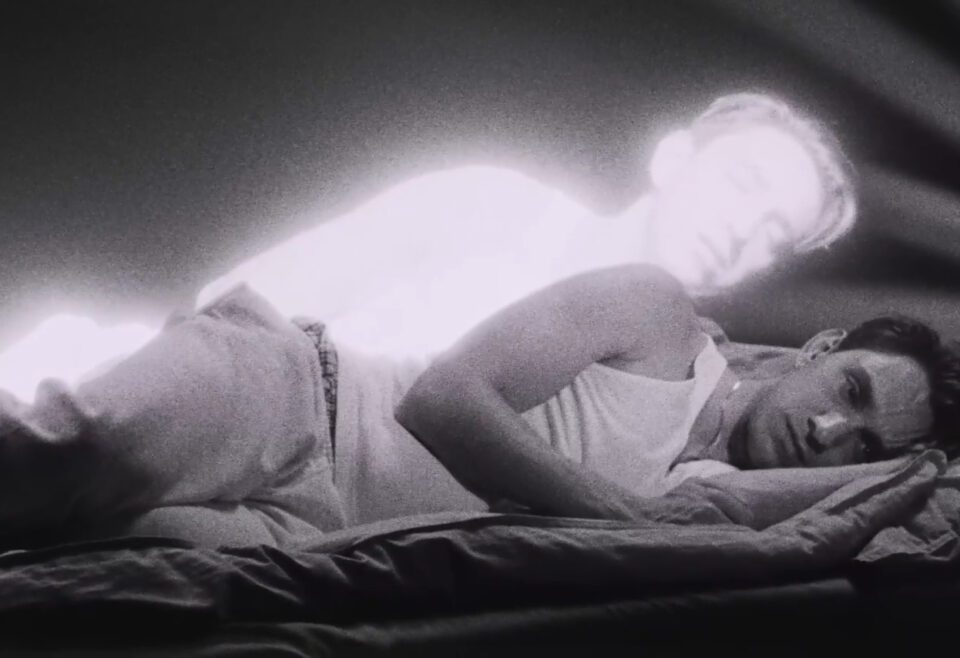
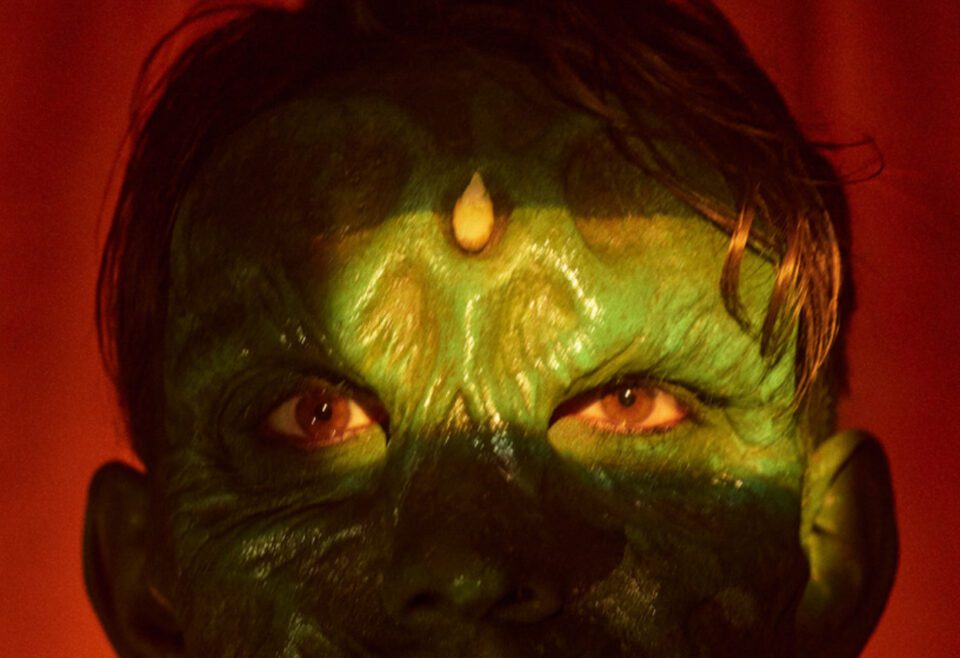
Did any of these characters majorly impact Hideous?
Yes, Buffalo Bill and Patrick Bateman get a mention on the album. There’s a scene in American Psycho where Patrick Bateman is doing his morning routine, his 50 step skin routine and doing his exercises. He’s talking about wearing a mask in the outside world that he thinks is going to be well-received, and not seem dangerous, and there’s a song on my record called Unreliable Narrator that I wrote around that monologue; the whole idea of wearing a mask. Norman Bates pretty much has the same monologue at the end of Psycho, where he’s in the prison cell and it’s the voice of his mother in his head like, ‘I’m not going to hurt a fly, they’re watching, I’m not gonna do it. I’m gonna let them know I’m just a little old lady and I wouldn’t do a single thing.’ That does the same thing to me.
Hideous explores internalised homophobia, anxiety and your HIV status. Working through these feelings of shame and fear, was it a cathartic experience for you?
It has been. It’s all been a really slow burn. I’ve had no Hollywood moments where I flick a switch and suddenly feel much freer. Releasing Hideous wasn’t an instantaneous turning point. The past three years of making this record, I’ve noticed differences from where I was to where I am now. Being on this Zoom and we’ve just met, and being able to talk about these things and even being able to mention my HIV, that would’ve been impossible three years ago. Making music hasn’t been where the change has happened. My mum’s advice to me was… She just knows me so well. I’m so much more willing to be honest in songwriting than I am in a sit down conversation. A song, I can just release and turn my back to it. I don’t have to be in the room when somebody listens to it. When I played that song to my mum she was like, ‘This is drastic. How about baby steps first?’ She was like, ‘Sit down and have some conversations with people you’re close to.’ Most of the people in my life knew about my status, but some people didn’t. Also, a lot of people I told them in a way of telling them one time and being like, ‘That’s done, we don’t talk about it now,’ like there’s an invisible force field around it. I had those conversations and they were really uncomfortable to begin with, but slowly, each one I had became a little less heavy and a little less serious. That’s where I actually felt liberated. Music can sometimes be a bit of a copout for me to share stuff.
People in the public eye are automatically assumed to be a beacon for the communities they respectively represent. After coming out as HIV positive, did you feel that pressure?
That’s been one of my biggest fears. It’s scary. I don’t know if I’m the most well-equipped person. Lots of people are asked, whatever they do in the public eye, to step into being a voice they’re maybe not the best equipped to be. I met with Terrence Higgins Trust last year and talked to them about trying to get some support from them and some advice. But I went into that meeting like, ‘What is all of the information I need? The most up to date information so that I can do this?’ They were really gentle with me like, ‘Hold on, that’s not your job. You don’t have to be that person. You can speak about your own feelings to whatever degree you want, but if you want people to have that information, you can steer them towards us. That’s our job, we do that.’ And that was so comforting to hear. Also, I just don’t want to preach. I know how I react when I feel like I’m being talked for, and I just rebel. I just speak in eye statements.
The film takes a monstrous turn after Fruit, when you transform into something that’s not quite… human. I have my own theories about what this represents, but what does this scene symbolise for you?
I use ‘monster’ in quite a loving way, I don’t see it as… It’s funny, because it comes out of a scene that is on a talk show and my reference point for that is Parkinson. The whole setup of a sit down interview is so interesting to me, because it’s meant to be this intimate conversation, me at my most laid-bare, but in front of an audience. So, it is performative. Turning into the monster, I kill loads of people! But, being angry, like I said, I haven’t allowed myself to do very much, especially growing up. Also, I allow myself to be embraced by Jimmy Somerville! It’s vulnerable. The monster to me is much more me and relatable than a sat down interview. When I’m trying to present as the most charming and handsome I can be, it’s probably because I’m trying to hide something else that’s going on. Hideous isn’t a look to me, it’s a feeling. I don’t see the monster as being the hideous character, necessarily.
Hideous is queer as hell. The xx wasn’t overtly queer, so was incorporating your queerness into your first era a conscious decision or did it happen naturally?
A bit of both. Romy and I’s decision within the xx, we started that band when we were teenagers. We were just starting to realise our sexualities and be a bit more open with it. Our thinking of not putting in pronouns into the songs was initially like, ‘Let’s keep things as general as possible so whoever you are, wherever you are, you’ll be able to connect to the music.’ There’s no mention of time or place. For me, there was also insecurity in that. I wasn’t ready and I’m not hard on myself, thinking back. As a listener, some of my favourite songs are sung by people that grew up in very different environments, very different generations, maybe they’re not the same sex as me, but I can still connect with a feeling. You don’t have to be a gay man or somebody living with HIV to connect with feeling shame. I think listeners have enough imagination. It was important for me, making an album about shame, that I wasn’t shying away. That would feed into the whole shame of it all. I spent ages trying to think, ‘What is the most poetic way I can say HIV?’ I was writing down all these different words and the whole process of looking for a different word made me feel ashamed.
Hideous is available exclusively on MUBI now.
Hideous Bastard is also available on iTunes and streaming services.
